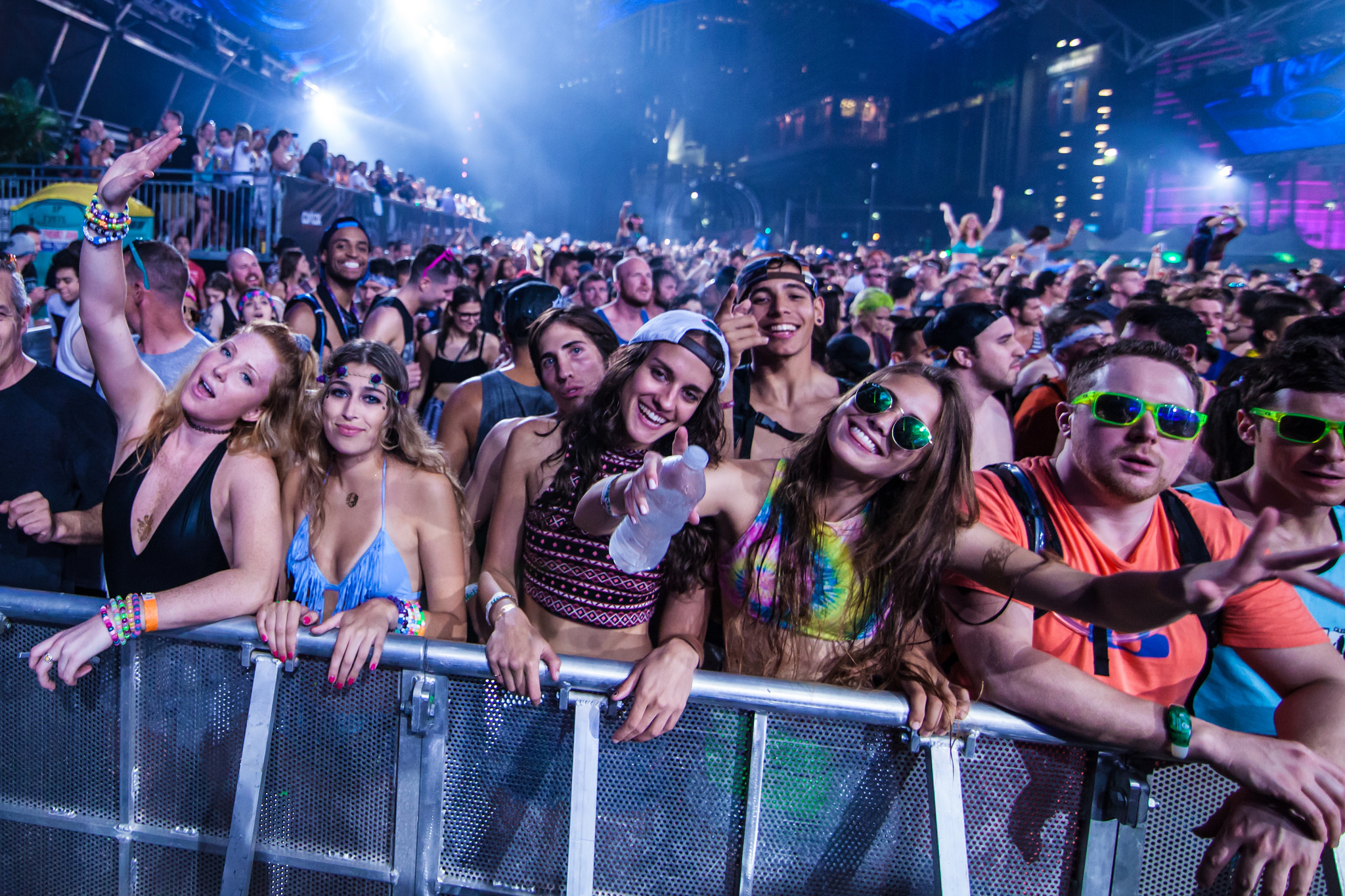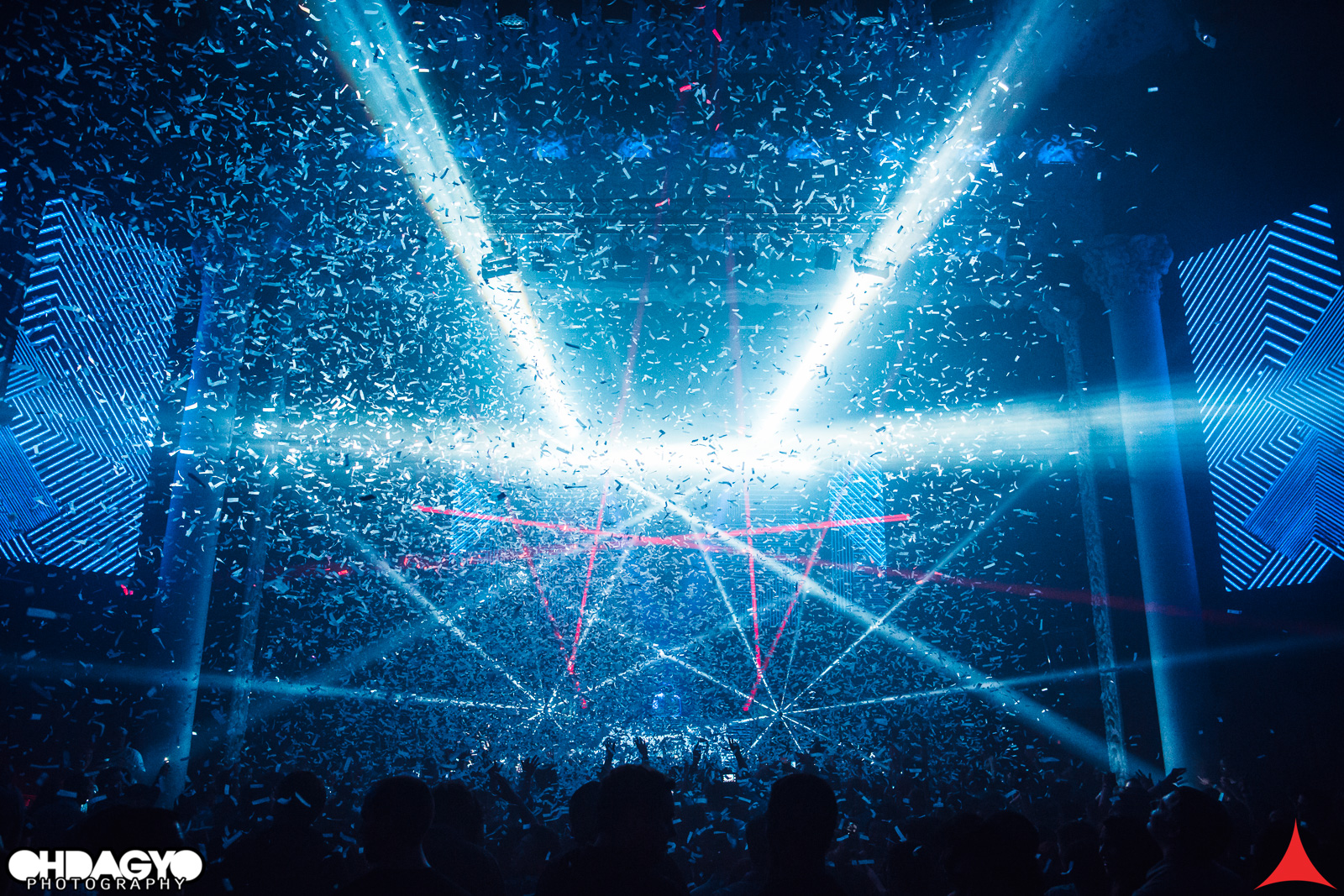In the modern EDM scene, there is a distinct divide between those who interact with the music as members of a collective community and those who simply consume it as if it were another product on the market. Belonging to a community is very different than simply using the fruits of its labor and love as a tool for your own momentary entertainment. Exhibiting direct involvement, communication and conversation with its other members, a genuine passion for its current state, and a willingly proactive approach toward the shaping of its future are all traits of someone who is a noble participant in cultivating a more enjoyable and substantial experience for its true fans. On the other hand, there are people who simply listen to the overplayed “hits” for their surface-level appeal. These people use live shows simply as a setting to get fucked up. They’ll likely ignore any artist that isn’t currently topping Billboard‘s charts. They passively subscribe to tracks that are force-fed to them by the largest media outlets and promotional corporations without taking the time to make up their own minds or “give back”.
These are the ones who diminish the reputation and character of the rest of us.
The mainstream, radio, top 40 hits that you’ll hear coming from artists like Tiësto, Calvin Harris, Steve Aoki, etc. have become widely and falsely representative of the greater genre of dance music. To those who don’t know much about EDM, or who use the music simply as a way to “get pumped up before going out”, these are the only artists that they need. The sad part is that these kinds of people make up the mass majority of listeners. Look at Shazam’s list of the most searched-for songs of last year and you’ll see that only the most repetitive, safe, insta-hit tracks made the chart. If these are the kind of songs that permeate outside of the community and become indicators of our collective taste, as they have been for several years now, those of us who actually appreciate the genre and dive deeper than simply turning on KISS FM and hearing “Turn Down for What” become either completely neglected or worse, grouped in with the top 40 EDM crowd.
This is what I mean by “giving back”.
“giving back” (v.) –
If you’re someone that searches out new artists, supports those who haven’t made it to the festival main stage yet, or even just takes a critical stance against the monotony being played out on the radio, you’re doing your part for the genre.
“not giving back” (v.) –
“Not giving back” means listening to whatever the radio and advertisements tell you to, paying for overpriced tickets to see shows simply because you heard the artist might be throwing cake at you, or solely using the music as an added feature of a drug/party experience without considering it an actual form of art.
This idea, I believe, holds true for every subgenre within EDM, and unites its true fans. Whether you’re a real listener of house, future, trap, hard dance, dubstep or anything else, having a two-minute conversation with someone who only pretends to be will tip you off immediately. These people enjoy partying, not the music. This mentality is totally fine, but when the rest of us have to suffer by being associated with their image and “tastes” against our will, it becomes something worthy of conversation.
Now, of course, we aren’t the only genre that has its share of those that misrepresent us. The outside media especially loves to prey on us due to the controversy surrounding our live shows, our catalogs of injuries and deaths from drug use, and our general neon-wearing, acronym-hungry, youth-culture-or-die unpleasantness in comparison to other crowds. We become easy targets for criticism and rejection. They say that what we listen to isn’t real music, and that our entire culture is based on a “let’s get fucked up and blind ourselves with strobe lights” mindset.
Now, any true fan of the genre can easily laugh this off and understand the misconceptions, but think about it from someone’s outside perspective. They look at our most popular songs, the DJs that have enough money to advertise themselves on billboards, the biggest venues with the most over-the-top stage setups, and the media’s giddy attempts to label us. If this were all you had to go on to try and understand the community, would your opinion of EDM be much different than theirs? Probably not. But who are the ones that promote this kind of behavior and image, and hide the humanity and true musical talent from the public’s eye? That’s right … the overwhelming majority of people in our scene who don’t give back.
This is by no means the first time this concept has been brought up, and I don’t at all claim to be uncovering some hidden truth. We all know about the divide within our community, and the changes we wish were taking place. I feel guilty, sometimes, trying to explain my music tastes to those on the outside. If my explanation requires me to use the words “EDM, “rave”, or “DJ”, I can instantly feel the sting of subtle negativity or condescension coming from the other party. I have to go on in length about what these words actually represent, and why they can be beautiful and inspiring concepts rather than childish or dangerous ones. The media has had such an influence on the masses, that it becomes necessary to educate people from the ground up on why the media is wrong.
With dance music being such an enormous part of my own life, it becomes exhausting to have to dig myself out of a hole every time I want to talk about it with someone who isn’t aware of the false stigmas. If more listeners were able to do their research, treat the genre and community with respect, realize how much it means to the rest of us, and understand how incredible the music is that comes from non-celebrity artists, the image and reputation of the genre as a whole would drastically change for the better as this new kind of behavior becomes the norm.
I urge such people to reflect on this and understand that their nonchalant, self-indulgent interactions with dance music substantially affect many of its true fans. Being able to acknowledge and avoid the songs that are being forced down your throats by the radio, and by celebrities posing as “musicians” that make $400,000 per set, will allow you to better both yourself and the community at large. We are passionate people, and are lifted and put at peace by the rhythms we listen to. There is often an intensity, a loudness, a simplicity, an unorthodox approach, a risk taken, or a novelty created within them that might scare off the casual listener. It is through these experimentations and niches among the larger whole, however, that characterize the genre and give it substance.
If you can entirely predict the drops you’re hearing before they happen, or find yourself consistently singing lyrics that would fit in an LMFAO song, you might not be exploring EDM as much as you could be. The pool of original and worthy content is bottomless, and the tracks you find have the ability to serve you well after the party has ended. Take the time to find your place within the genre, rather than be satisfied simply as a guaranteed monetary asset for the top earners in our scene. Give back, and take part in shaping the future of our exciting movement. It’s up to us to create the tastes and trends worth hearing instead of being told what to listen to by the top 10 charts. Let’s take back the term “EDM”, and transform its meaning into what it should have been all along.
Written with help from Michael Dix











